This week, New York-based Pfizer and the German company BioNTech made history by presenting preliminary data indicating that their coronavirus vaccine was over 90% effective. Now their next big challenge will be to figure out how to give it to enough people. Given the vaccine is unstable unless kept in a deep freeze (minus 70-80 °C), it is unlikely that Pakistan, without the required cold chain storage, will be able to benefit. Pakistan has also been struggling to find volunteers for its own Phase 3 trials of the Chinese vaccine by CanSino Biologics. The vaccine has already been approved as an ‘specially needed drug’ by the Chinese military and is also being tested in Saudi Arabia and Russia.
Weekly Data Watch
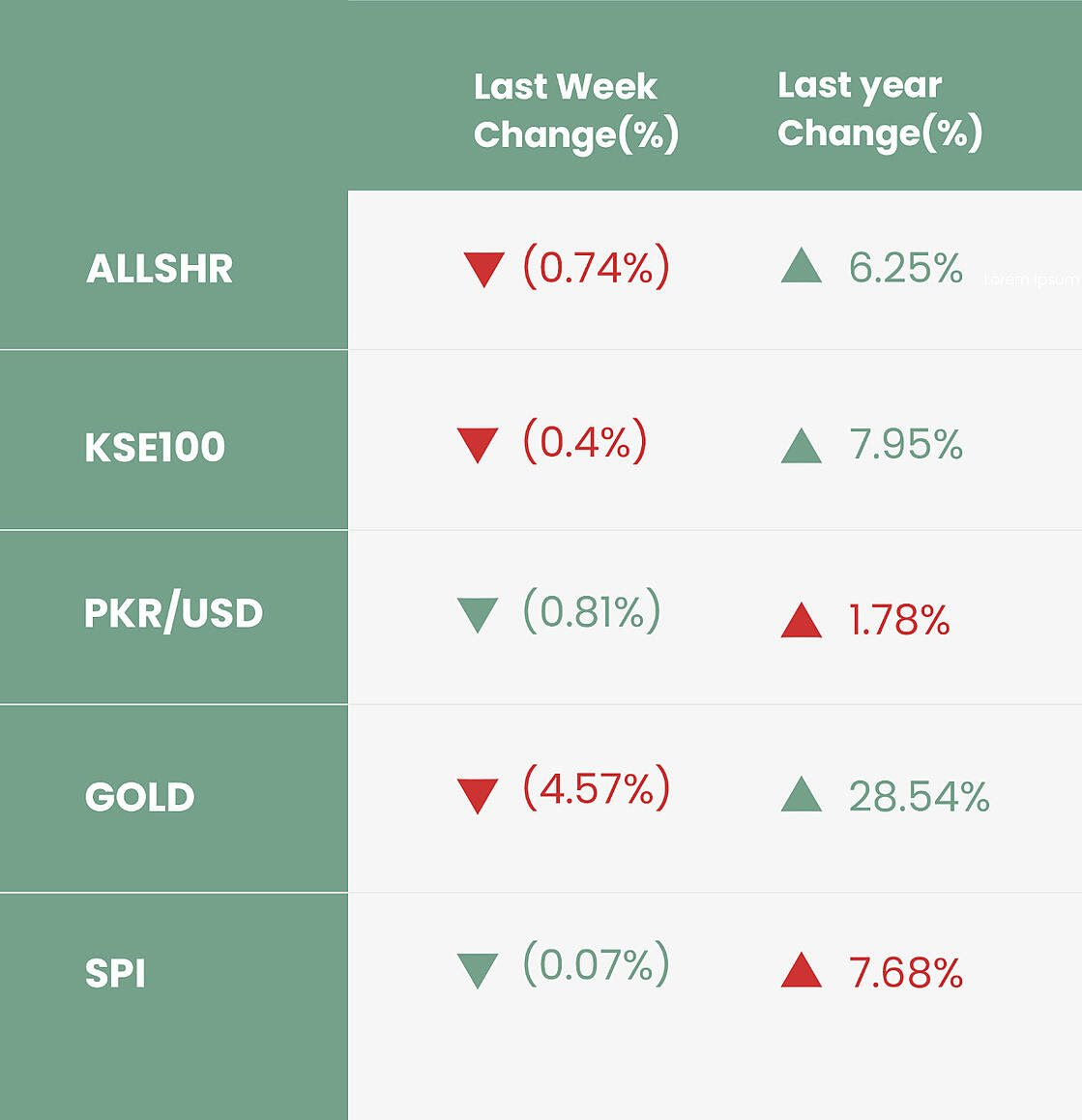
With news of the vaccine, international investors backed away from safety trades as international gold prices suffered their biggest single day fall in seven years. As remittances stayed above USD 2 B for the fifth straight month, the exchange rate against the dollar continued to strengthen. The stock market fell slightly this week but is up from last year.
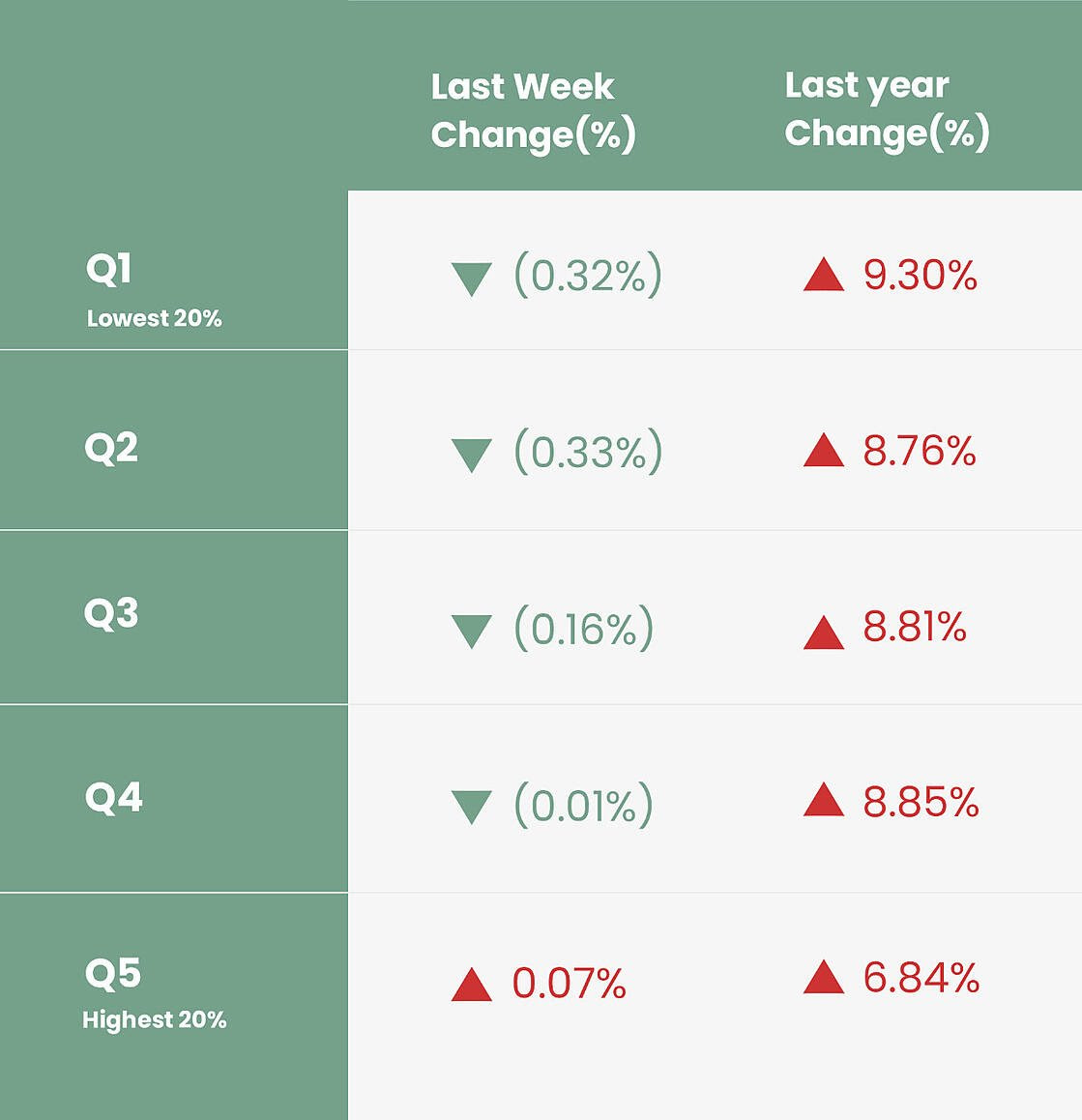
Sensitive Price Index increased by 7.7% since last year but is on the decline week on week. Inflation trend for highest 20% of income earners reversed last week on the back of price changes in select commodities. Most commodity prices remain high as compared to last year, with Chicken and Sugar both up over 40%. At the same time, Tomatoes have dropped by over 30% in price since last year. On a weekly basis, food prices continued their fall with Chicken the notable exception.
Why should Pakistan care about Climate Change?
By Muhammad Ahmad
According to CRI data, Pakistan falls in the category of unfortunate countries that are “continuously affected by extreme events”. Read more
In discussing factors that impact crops in Pakistan, our last contributor mentioned how farmers have limited control over climate. It is not just farmers who have limited control over climate, urban dwellers of Karachi were also reminded of their helplessness in the face of disastrous monsoon rains last August. Our next contributor, Muhammad Ahmad, drives the point home by highlighting exactly what the world has in store for us in the coming century. While Global Warming is a global problem, he explains why Pakistan has reasons to care more about it than the rest of the world.
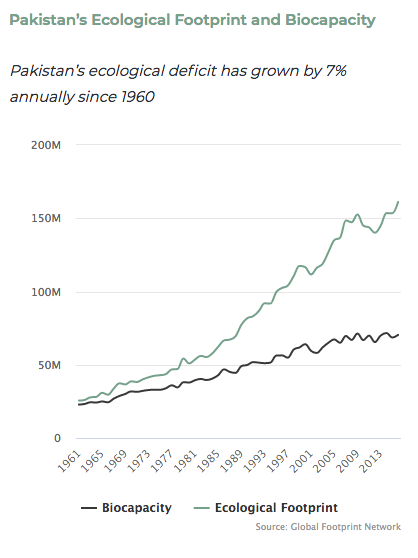
Think of biocapacity as the ecological resources available to a population and the ecological footprint as the consumption of those resources. When you consume more than the resources available, you get a deficit. In Pakistan’s case, since the 1960s, we have had an ecological deficit that has grown aby 7% annually. Extreme weather events have regularly affected the country, leading to a loss of ~10,000 lives and economic damage of almost $4 B in the last 20 years. This puts Pakistan number 5 on the list of most affected countries between 1999 and 2018, according to the Global Climate Risk Index (CRI). Across other metrics as well, Pakistan is expected to be hit hard by climate change.
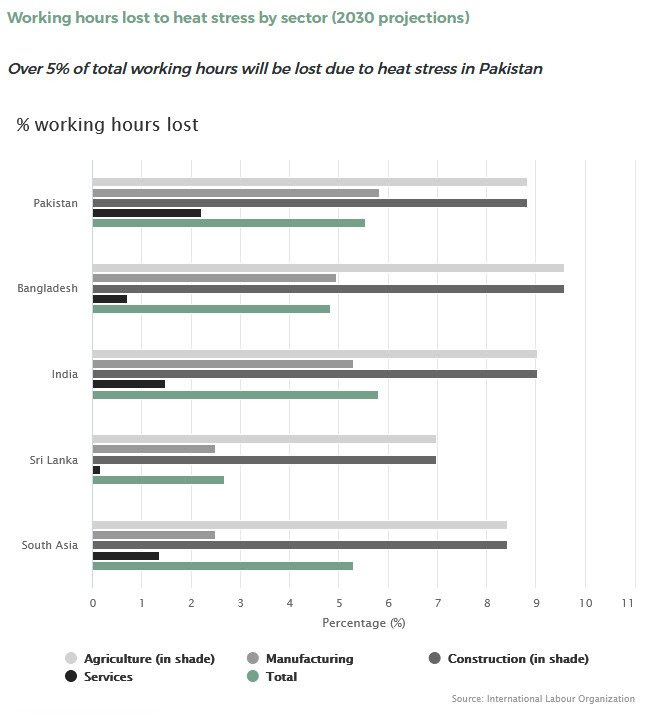
The above graph shows the 2030 projections for working hours lost due to heat stress by sector in South Asian countries.
- South Asia will generally suffer badly. The region has the lowest emissions per person but the highest expected productivity loss in 10 years’ time.
- Pakistan’s loss is higher than South Asian average. Over 5.5% of working hours are expected to be lost due to rising temperatures in the country.
- Heat stress acts like an inequality multiplier. Agriculture and construction will be most adversely affected – sectors with high proportions of low income earners.
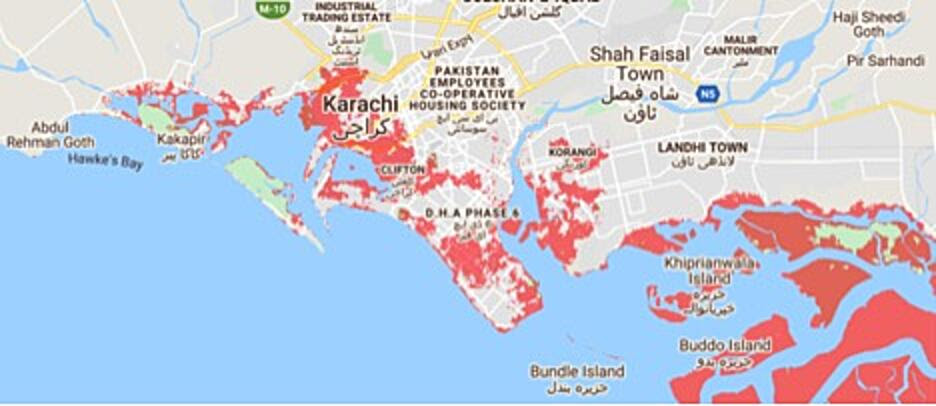
Pakistan, and especially Karachi, is also at a high risk of flooding. The map above depicts key areas of the city submerged by 2050, even with moderate climate measures in place. SITE and especially Korangi, two of the most economically vibrant locations in the country are projected to be underwater. Read the full article to learn more!
What Else We’re Reading (Local)
Inflation over the past two years is a complex interplay of external and internal factors; hence, the response needs to be multipronged. (Dawn)
The uptick in remittances during the pandemic was unexpected and has been well received. But it is not necessarily good news in the long run. (Profit)
While the Naya Pakistan Housing Scheme has a target market in mind, they cannot ensure that market would be tapped most efficiently (Business Recorder)
Rebound in construction, sugar, automobile and pharmaceutical sectors has led to the Large Scale Manufacturing index rising by 7.65% YoY in September 2020 (Profit)
What Else We’re Reading (International)
Steps Pfizer is taking address the logistical challenge of delivering the vaccine, requiring cold storage similar to shipped ice cream, to even Western countries (Wall Street)
Chinese COVID vaccine finds few volunteers in Pakistani trial – selected five hospitals are having trouble getting the expected 8,000-10,000 participants (Nikkei Asia)
Joe Biden has claimed 306 electoral votes and is set to become the next President of the United States but current President Trump is yet to concede the election (CNN)






